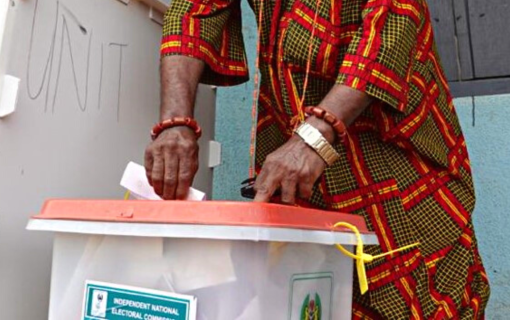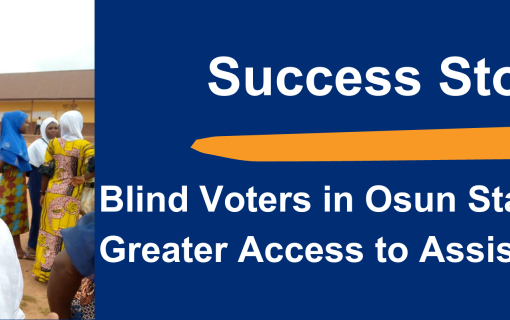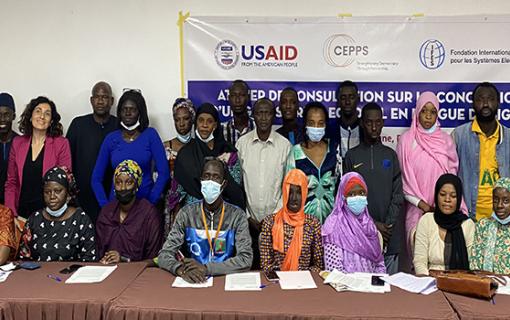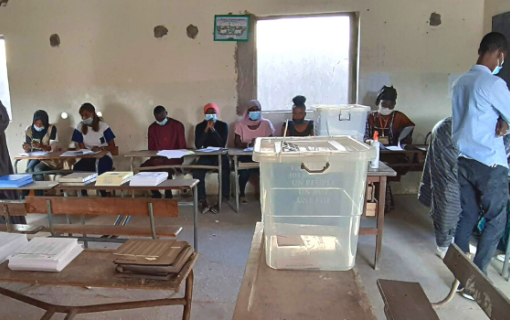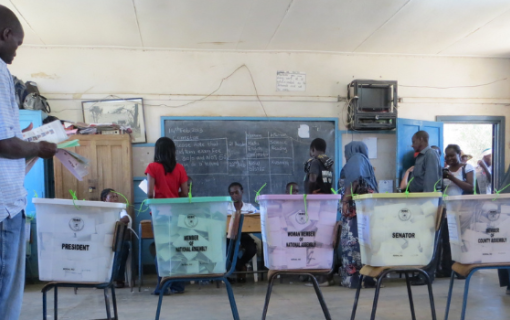Burkina Faso: Partnership for Participation and Poise in Epic Polls
PROGRAM INFORMATION
Country: Burkina Faso
Project Title: “Partnership for Participation and Poise in Epic Polls”
Period of Performance: February 1, 2015 – July 31, 2016
CONTEXT
Burkina Faso’s political landscape changed dramatically on October 31, 2014, when President Blaise Compaoré stepped down after nearly three decades in power and fled the country. The 2015 elections offer an unprecedented opportunity for deepening citizen involvement in electoral and political processes, increasing citizens’ confidence in the integrity of voting processes and systems, and enabling young people to channel their new-found activism into peaceful political participation. The elections also carry considerable risk. Unless they are viewed as credible and their outcomes accepted as a legitimate expression of popular choice, alienated citizens, in particular energized young people, could be compelled to reject political processes they deem illegitimate or unfair. USAID’s Consortium for Elections and Political Process Strengthening (CEPPS) proposed an 18-month program to further the goal of supporting Burkina Faso to hold well-managed, democratic elections that address the needs of the people and develop a strong civic-minded society.
IFES TECHNICAL ASSISTANCE
CEPPS and the International Foundation for Electoral Systems (IFES) will work closely with the Independent National Electoral Commission (CENI) to develop and implement an in-depth assessment of the CENI’s capacities and needs, as well as clearly document the Commission’s internal workings. Based in large part upon the results of this assessment, CEPPS/IFES will work with the Commission to address gaps in key areas, including: election results scanning, tabulation and transmission systems; systems to secure electoral materials and/or processes; and civic and voter education, with an emphasis on peace messaging.
As part of this assessment, CEPPS/IFES will conduct an organizational evaluation of the CENI, and determine ways of streamlining operations and promoting transparency and inclusiveness. The evaluation will include a robust gender analysis to determine, among other concerns, how the interventions being developed for the purposes of this program could promote women’s roles in electoral administration.
The proposed program will feature a series of targeted trainings and general technical assistance and capacity building based largely on the results of the needs assessment. Specific interventions will likely include the procurement and installation of an election results scanning, tabulation and transmission system and the trainings associated with such a system. Likewise, CEPPS/IFES will work closely with the CENI to develop and implement a system for securing electoral materials and/or processes, depending on the CENI’s needs.
A final element of the proposed program will be to work closely with the CENI, the Government of Burkina Faso, and civil society organizations to develop a solid civic and voter education communication plan that will place a heavy emphasis on peaceful participation of youth in the electoral process. It is hoped that such outreach measures will aid in increasing the credibility of the electoral process and decrease the risk of electoral violence.
Following the 2015 presidential poll, CEPPS/IFES will organize a post-election workshop to evaluate the successes and challenges of the electoral process, and develop a set of specific recommendations for the CENI for future elections.




